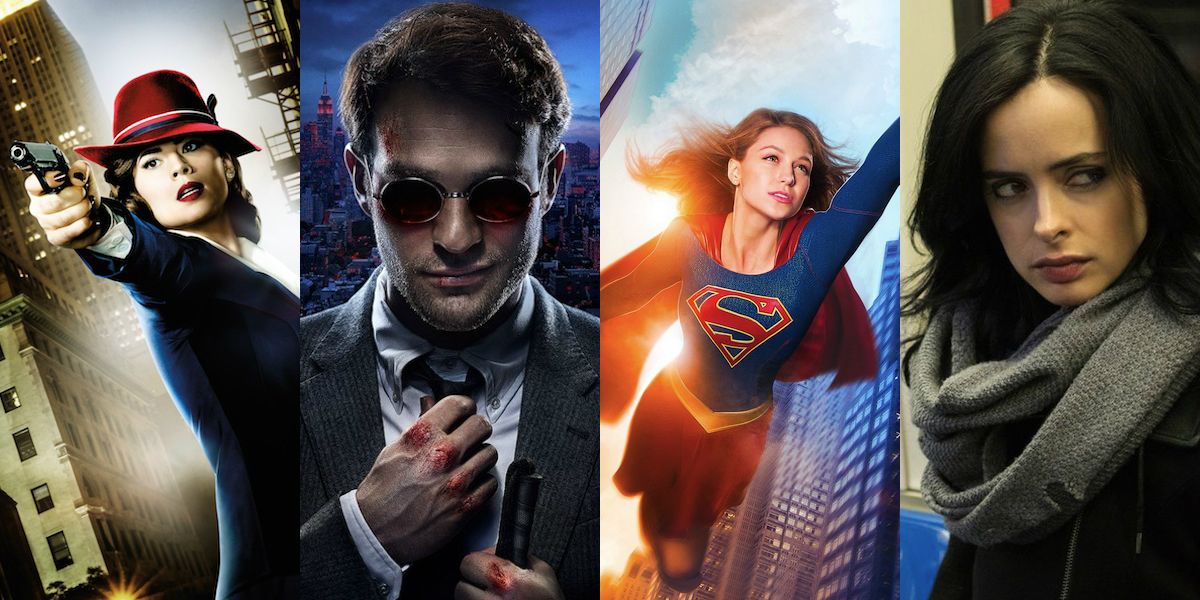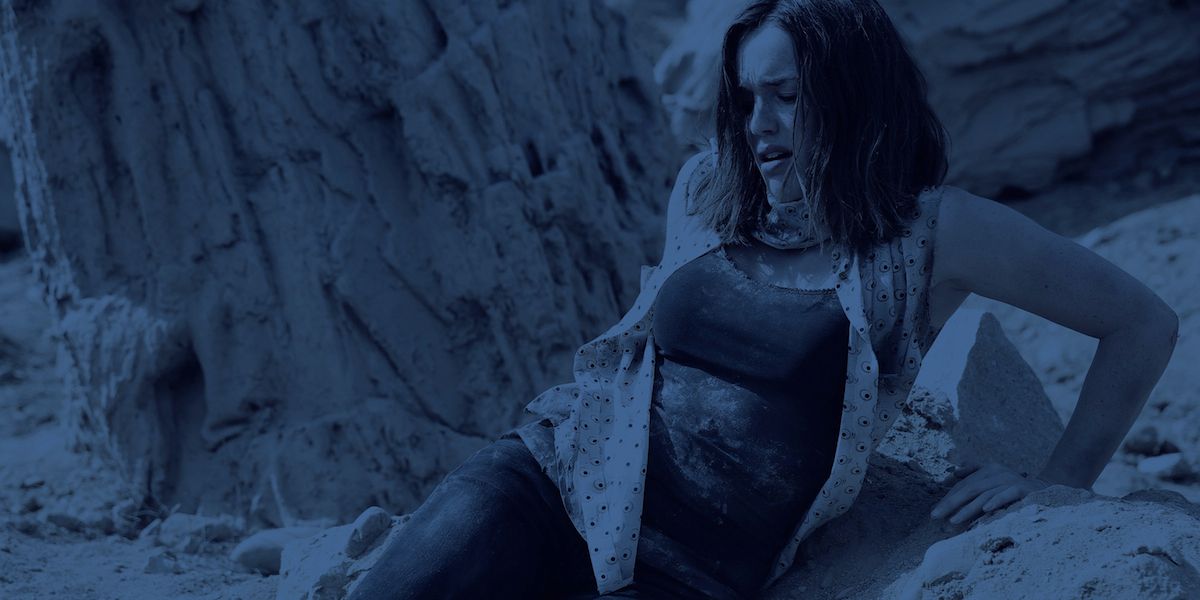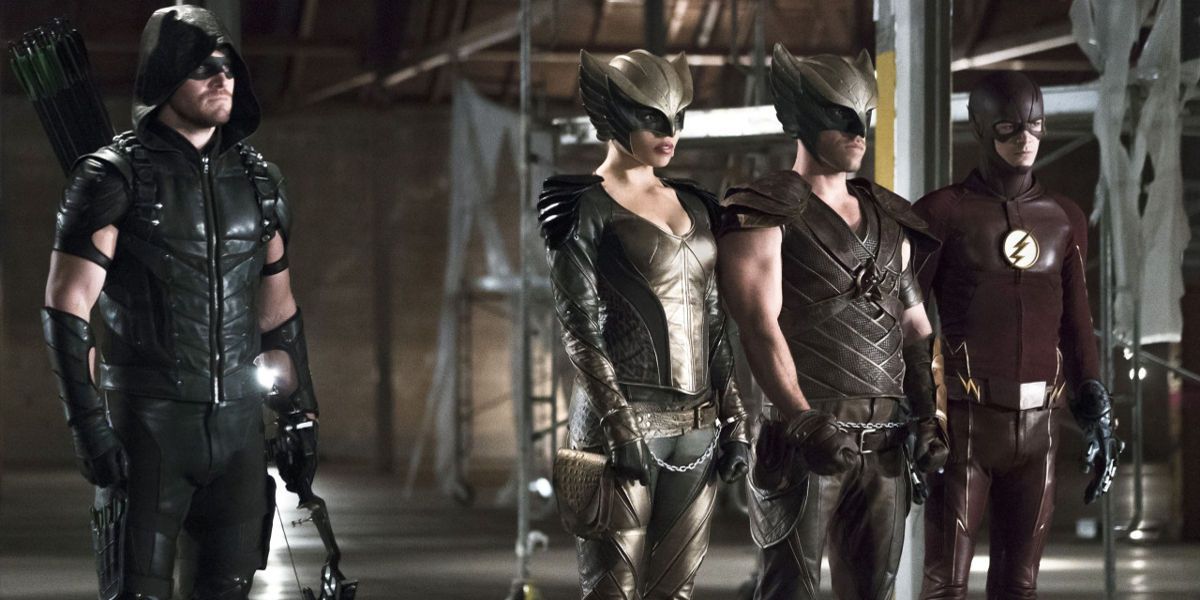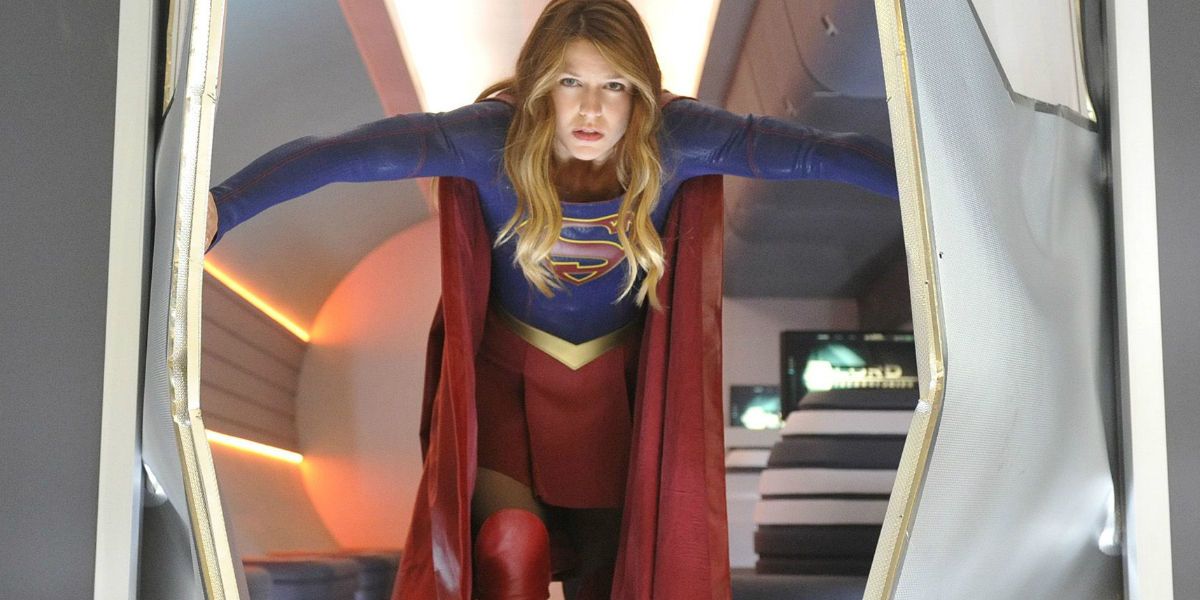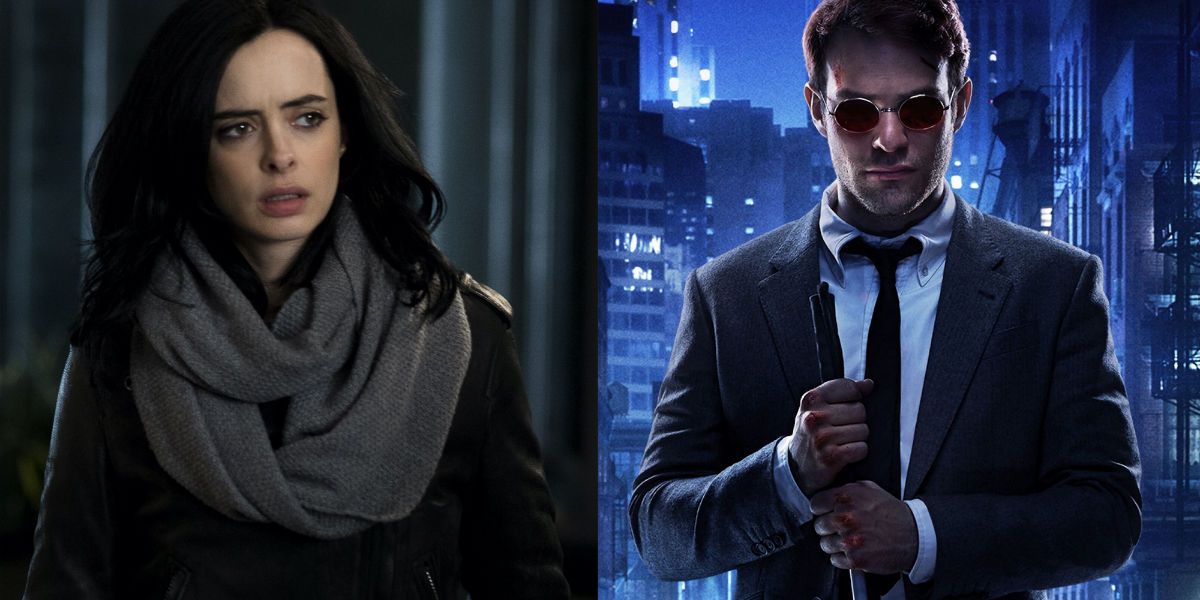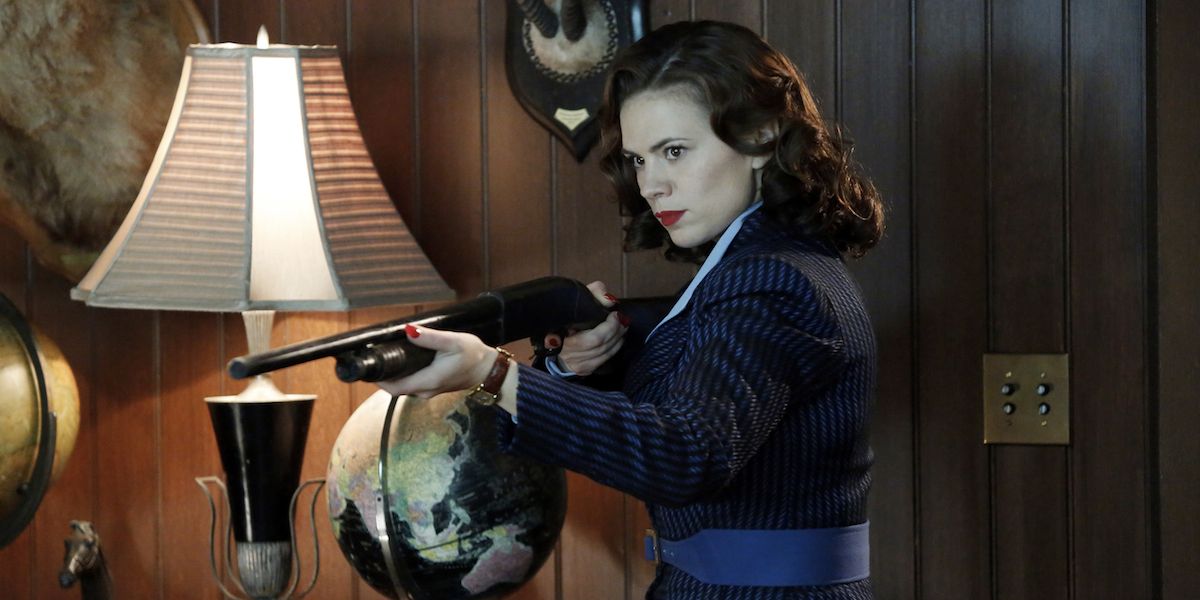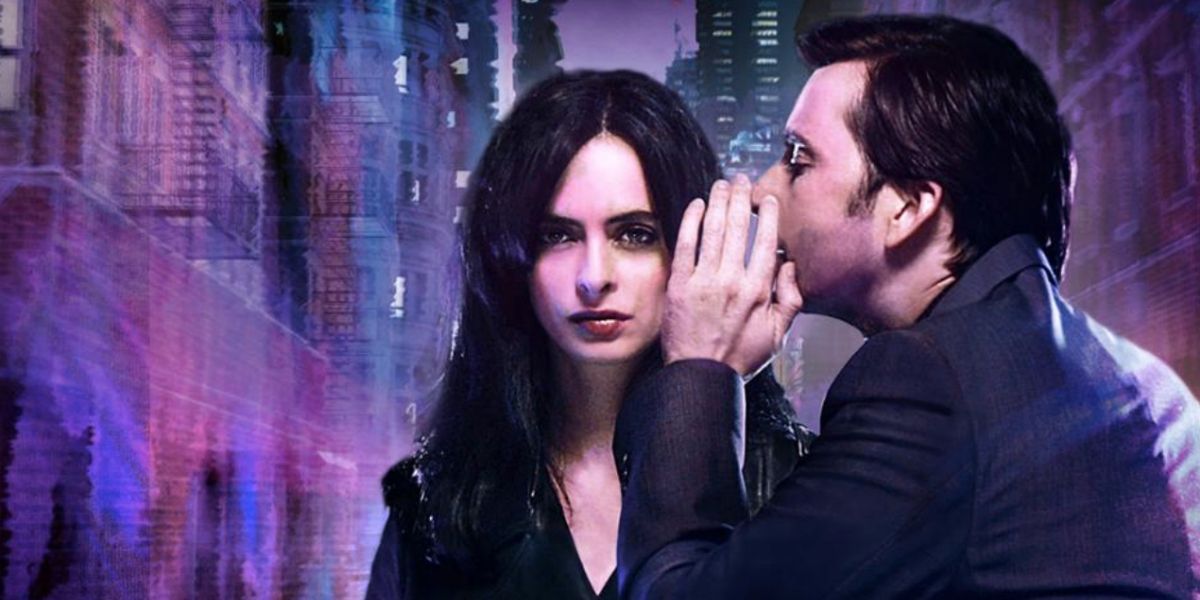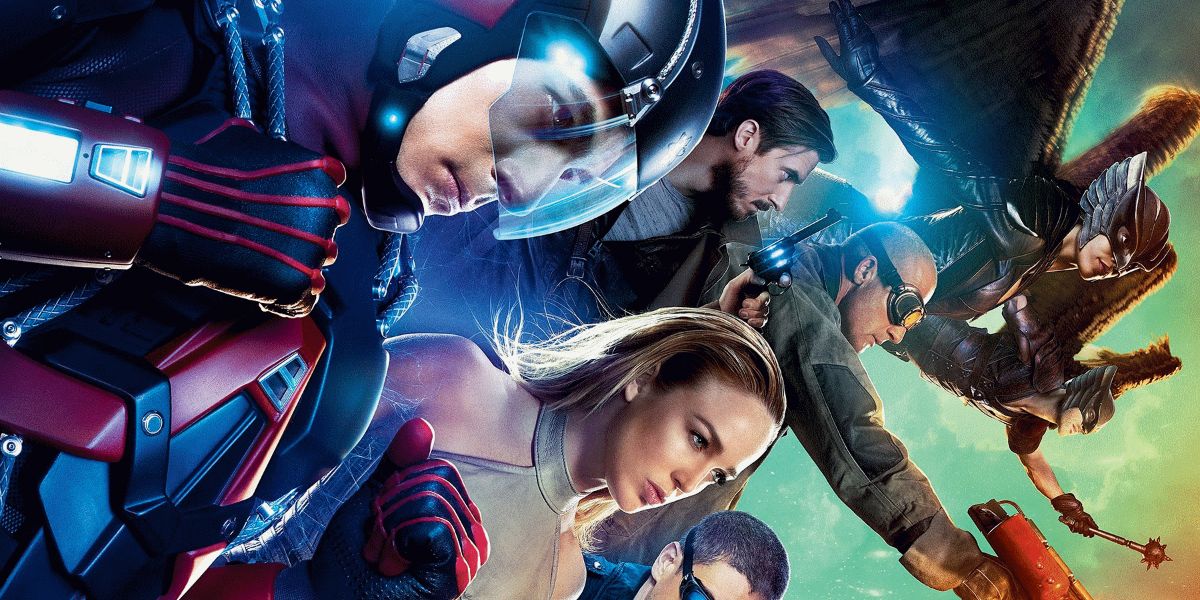Television networks have attempted to tap into the comic book superhero genre many times over the past 60 years, finding hits in the 1960s Batman as well as Wonder Woman and The Incredible Hulk in the '70s, then The Flash in the '90s and Smallville in the early 2000s. Now we're in another age of comic book superhero popularity, largely launched by Marvel's Cinematic Universe and hit team-up film, The Avengers, which has ushered in a resurgence of shared universe storytelling both on the big and small screens.
This newest comic book superhero trend in movies and television has caused another boom in TV shows based on characters from both DC and Marvel comics. In recent years, The CW launched a shared universe with Arrow and its spinoff The Flash, ABC and Marvel created a cinematic universe tie-in with Agents of S.H.I.E.L.D., Fox launched the Batman prequel drama Gotham, and NBC tried their hand at the character of Constantine, though the series only lasted for one season.
In 2015, superhero TV continued to expand as Marvel added another ABC series in the form of Agent Carter, which aired during Agents of S.H.I.E.L.D.'s midseason break. Additionally, the studio teamed with Netflix to launch their own corner of the MCU that included standalone series Daredevil and Jessica Jones. CBS entered into the game with their first superhero offering in the genre's newest era of popularity, Supergirl. But, comic book-based superhero TV hasn't simply expanded in 2015, this year saw a marked improvement in a number of aspects in the networks' television ventures.
Ambitious Storytelling & World Building
Agents of S.H.I.E.L.D. has continually upped its game every season, dealing with the fallout from Captain America: The Winter Soldier's reveal of Hydra's infiltration in season 1, then introducing and developing the mythos of Inhumans in season 2 as well as season 3. But, the show's standout moment of 2015 was their season 3 bottle episode '4,722 Hours' which followed what happened to Jemma Simmons (Elizabeth Henstridge) after she was sucked through a portal in the alien Monolith in the season 2 finale and deposited on a strange planet for more than six months. '4,722 Hours' was a definite risk for Agents of S.H.I.E.L.D. since it was such a divergence from its usual episodes, but it paid off and became the strongest episode of the third season so far, and arguably of the series to date.
'4,722 Hours' managed capitalize on the ambitious storytelling of Agents of S.H.I.E.L.D.'s writers by telling a dramatic, well-paced story with only two human characters - a first for Agents of S.H.I.E.L.D., which primarily depends on its large cast and their various relationships to carry the episodes. In addition to the compelling storyline, we now know that '4,722 Hours' helped to establish the mythos of the alien planet, Maveth, which played a big part in the show's midseason finale, and set up the antagonist for the second half of the third season. So while this episode played a key role in the storyline of Agents of S.H.I.E.L.D. season 3, it also offered viewers a hint of what the writers are capable of if given the room to explore their creativity, which could help the show improve even more in its upcoming episodes and seasons.
As for The CW's Arrowverse, both The Flash and Arrow have taken on larger world-building story threads in their seasons two and four, respectively. Earlier this year, in the second half of The Flash season 1, the show introduced time travel as an element that came back for the season 1 finale. Now in season 2 The Flash is exploring alternate realities with the wormholes between Earth-1 and Earth-2. Arrow, meanwhile, has delved into mysticism with the introduction of The Lazarus Pit - which played a pivotal role in bringing Sara Lance (Caity Lotz) back from the dead - and Damien Dahrk (Neal McDonough). Additionally, both shows worked to set up the third series in The CW's Arrowverse, the upcoming Legends of Tomorrow, by introducing characters that will later star in the spinoff or making sure previously introduced characters were in a state where they could appear.
Although Arrow and The Flash's time spent setting up Legends of Tomorrow has arguably detracted from their own respective story lines, both shows can be applauded for tackling more ambitious world-building than in previous seasons. Arrow's mysticism has added a new element to a show that had primarily stayed rooted in crime drama, and allowed the series to feature a guest role for John Constantine (Matt Ryan), which spawned a new resurgence in the #SaveConstantine fan movement. On the other hand, The Flash's introduction of Earth-2 has helped the show usher in an even bigger, badder villain for season 2 in the form of Zoom, which led to the series' most chilling sequence of the evil speedster defeating Barry Allen (Grant Gustin). Still, though these world-building efforts of Arrow and The Flash have seemingly paid off in a fashion, whether their time spent setting up Legends of Tomorrow was put to good use remains to be seen when the show debuts early in 2016 - though it should be noted that they pulled off the feat more effectively than viewers could have predicted at this time last year.
Widespread & Dramatic Appeal
When it first premiered in 2013, Agents of S.H.I.E.L.D. attracted 11.9 million viewers and a 4.9 rating among the 18 to 49 demographic for its pilot episode. Although that was successful at the time for a comic book series, Supergirl's premiere garnered 14 million viewers - though only a 3.2 rating - and became the most-watched new show of the Fall 2015 season, placing it ahead of all non-comic-based series. The number of weekly viewers for Supergirl has dropped off since its premiere, but is holding steady with 7-8 million each week. Plus, critical reception of the series has been strong, maintaining a 97 percent on Rotten Tomatoes, and continues to grow as Supergirl delivers compelling character moments mixed with major reveals in its ongoing story threads.
Although Supergirl is the highest rated new show of the 2015 fall season, the Marvel and Netflix shows that premiered this year have drawn their fair share of critical acclaim, with Daredevil holding a Rotten Tomatoes score of 98 percent and Jessica Jones a 93 percent. Screen Rant named Jessica Jones "Marvel's most compelling series yet" and Daredevil was part of making Marvel TV stronger than the film side of the MCU in the studio's Phase 2. Additionally, both shows' adult-skewing drama garnered praise, specifically Daredevil's handling of the character's darker side and Jessica Jones's dealing with the subjects of rape, abuse, and post-traumatic stress.
All this is to say, 2015 saw a number of comic book superhero shows draw in viewers in large numbers outside of the fan demographic. Supergirl has been applauded for appealing to a wide range of ages due to the show's positive portrayal of a female superhero as well as ongoing themes of family and being empowered by stay true to yourself. Although Daredevil and Jessica Jones don't appeal to the exact same audience as Supergirl, the Marvel Netflix shows have managed to tap into television fans that skew more toward dark, dramatic, slow-burn series, as well as drawing in audiences that may not have seen every film in the MCU library or picked up a Jessica Jones or Daredevil comic.
With the diversification of comic book superhero stories on television, the audiences for those different stories have grown as well. Additionally, with even more comic book heroes planned to be adapted to TV in the coming years, we may see even more widespread interest in these stories.
NEXT PAGE: Female-Led Superhero Stories
Female-Led Superhero Stories
Ever since fans realized this latest resurgence of superhero media won't be dying down anytime soon, many have called for more female-driven stories both on television and in film. Last year, Warner Bros. and DC Comics announced their slate of upcoming features that will make up the DC Extended Universe, which includes a standalone Wonder Woman film debuting in 2017. Shortly after, Marvel announced their Phase 3, including a Captain Marvel film that was, at the time, scheduled for 2018 and has since been pushed to 2019. But, although these films are planned or in production, TV got a jump on featuring more female stories this year with the premieres of Agent Carter, Supergirl, and Jessica Jones.
Of course, having female lead characters isn't enough to call these shows feminist triumphs, particularly in the case of Agent Carter since the series' main character, Peggy Carter (Hayley Atwell,) is mostly surrounded by men whose 1940s sexism is so overt as to seem cartoonish. But, the show can be applauded for featuring a main character who is strong and capable without sacrificing her femininity for the sake of adopting more masculine traits, a common practice of directors and storytellers portraying female action stars. Still, Agent Carter has many areas in which the show could improve in its second season - and it could, given the inclusion of more female characters and the exclusion of Peggy's more sexist coworkers.
As for Supergirl, the show has been just as overt in its handling of sexism and feminism throughout its first run of episodes, beginning with Kara's (Melissa Benoist) conversation with Cat Grant (Calista Flockhart) in the pilot about naming the superhero a girl rather than a woman. Later conversations include Cat's lessons for Kara about how women need to work harder than men to be just as successful, or that women need to be calm and composed at all times while men do not. Although Supergirl's dealing with sexism is on-the-nose, it is reflective of our current culture in which there are far more male than female CEOs of S&P 500 companies and the stereotype of a "crazy" ex-girlfriend still exists. But, while Supergirl's overt handling of sexism may not appeal to some viewers, the show continues to be one of the highest-rated comic book superhero series currently on television, so it’s certainly effective for many.
Lastly, Jessica Jones struck a chord with female viewers because the show managed to tap into the female experience by using the villain Kilgrave (David Tennant) as a mirror for modern misogyny. Fans of the series have especially highlighted his command for Jessica (Krysten Ritter) to smile, which parallels common sexist harassment messages that have launched protest campaigns, including "Stop Telling Women to Smile." Additionally, Jessica Jones features a number of complex and compelling female characters aside from the titular superhero, like Trish Walker (Rachael Taylor), Jeryn Hogarth (Carrie-Anne Moss) who is based on the male comic character of the same name, and Hope Schlottman (Erin Moriarty). The inclusion of these characters meant Jessica Jones season 1 dealt with a range of female stories and offered a more well-rounded look at the experience of women.
So, while Agent Carter, Supergirl, and Jessica Jones all handled the stories of their female characters and their own takes on sexism differently, the premieres of these shows as well as their critical and viewership successes offers hope that comic book superhero fans could be seeing more female-led stories on television - and in film.
Conclusion
Superhero television made a number of strides forward in 2015 with the premiere of new series and return of ongoing shows, but there are still certain aspects on which the genre could improve, like more diversity in the genre and even more storytelling risks. Many of these live-action comic book series will continue in 2016 with current and/or new seasons, while networks and streaming services will also be debuting new shows like Legends of Tomorrow on The CW and Luke Cage on Netflix. With so many more comic book superhero shows in development at various networks, it seems this genre on television will continue to grow, and hopefully continue to improve in the coming year.
-
Agent Carter season 2 premieres Tuesday January 19th, 2016 at 9pm on ABC. Agents of S.H.I.E.L.D. season 3 returns next year on Tuesday, March 8th at 9pm on ABC. Daredevil season 1 and Jessica Jones season 1 are now available on Netflix. Luke Cage season 1 and Daredevil season 2 will debut on Netflix in 2016. Release dates for Iron Fist and The Defenders on Netflix have not yet been announced.
The Flash will return on Tuesday, January 19, 2016 at 8pm on The CW, while Arrow will return on Wednesday, January 20, 2016 at 8pm on The CW and Legends of Tomorrow will see its series premiere on Thursday, January 21, 2016 at 8pm on The CW.
Supergirl will return on January 4th, 2016 at 8pm on CBS.

